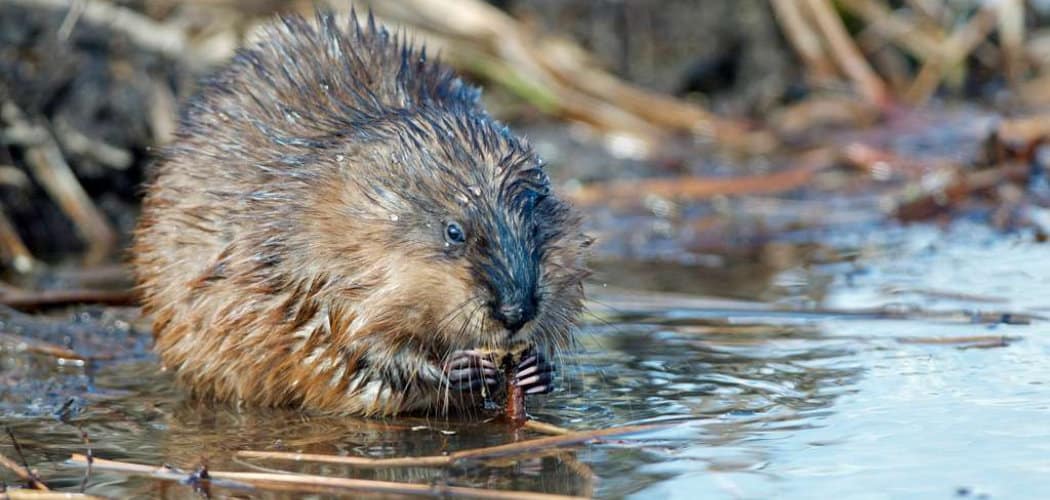Have you ever seen a muskrat? They are small, brown mammals that live in the water. People often dismiss these creatures as unimportant, but they actually have a lot of spiritual meaning. In this blog post, we will explore the muskrat spiritual meaning and what they can teach us about ourselves. Stay tuned for more!
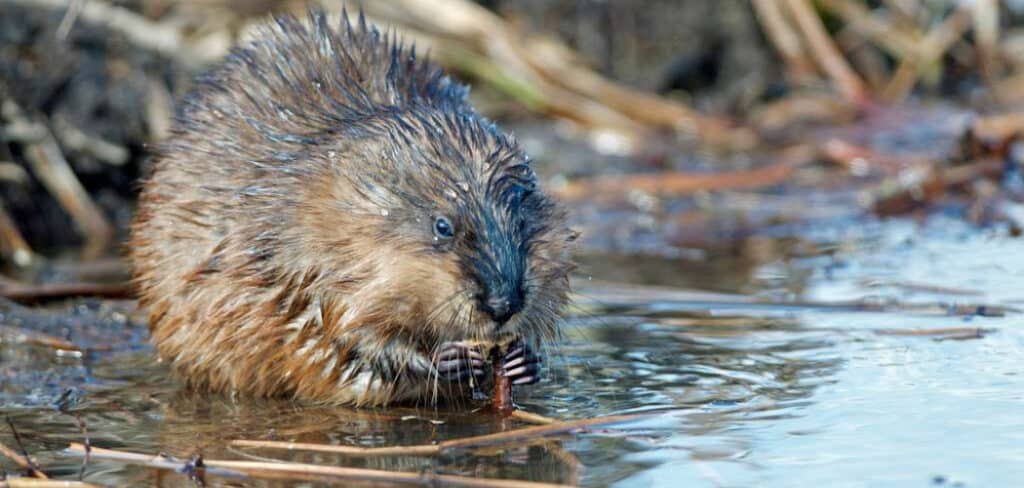
Muskrat Symbolism and Meaning
Muskrat Native American Symbolism
The muskrat is a small, water-dwelling rodent that is found in North America. Although it is not a popular animal, it has been revered by some Native American tribes for its ability to live in both water and land. In addition, the muskrat is seen as a symbol of adaptability and resourcefulness, as it can build its home using whatever materials are available.
In addition, the muskrat is known for its skill in swimming and diving, which has led some tribes to see it as a symbol of strength and courage. Finally, the muskrat is also associated with the moon, as it is believed to be able to travel between the world of the living and the spirit world. For these reasons, the muskrat is a powerful animal totem that can teach us many lessons about life.
Muskrat Eastern Symbolism
In Native American cultures, animals are often revered as sacred symbols of strength, wisdom, and power. The muskrat is one such animal and holds a special place in the mythology of the Eastern Woodlands tribes.
According to legend, the muskrat was once a great warrior who had the power to transform into a giant beaver. He used his strength to defend his people from their enemies and was greatly respected for his courage and skill in battle.
In some versions of the story, the muskrat is also said to have created the first canoes, which allowed people to travel to distant lands. Regardless of how the legend is told, the muskrat remains an important symbol of strength and bravery in Eastern Native American culture.
Muskrat Christianity Symbolism
Christianity has always been a religion with a strong focus on symbols and sacramentals. Throughout the ages, Christians have used symbols to communicate their faith and to express their beliefs. One of the most popular Christian symbols is the muskrat. The muskrat is a small rodent that is found in North America.
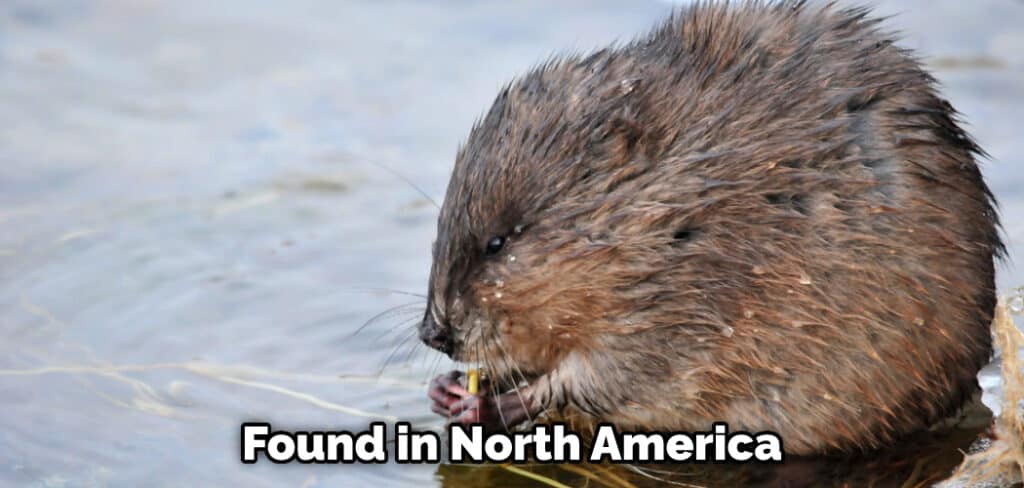
It is known for its furry tail and its ability to swim. In Christian symbolism, the muskrat represents Christ’s willingness to take on the burdens of others. Christ is often referred to as the ” Good Shepherd” who is willing to lay down his life for his sheep.
In the same way, the muskrat is willing to take on the burdens of others and help them to overcome their struggles. The muskrat is also a symbol of self-sacrifice and service. Christ sacrificed himself for our sake, and in doing so, he showed us the importance of serving others.
When we see someone struggling, we should be willing to help them, just as Christ helped us. So the next time you see a muskrat, remember that it reminds you of Christ’s love for us and his willingness to serve others.
Muskrat Celtic Symbolism
Muskrats are a common sight in the wetlands of North America, but they have also been adopted as a symbol by the Celtic people. The Celts saw muskrats as a sign of fertility and abundance, and they often used muskrat pelts to decorate their clothing and homes.
In some cultures, muskrats were also seen as guardian spirits, and it was believed that they could help to guide humans through difficult times. Today, the muskrat is still seen as a symbol of Celtic heritage and is often used in artwork and jewelry. For many people, the muskrat is a reminder of the beauty and traditions of the Celtic people.
Muskrat African Symbolism
The muskrat is a large rodent that is native to Africa. It is a popular symbol of fertility and abundance and is often associated with the goddess Hathor. The muskrat is also associated with the Egyptian god Set, who was often depicted as having a rodent’s head.
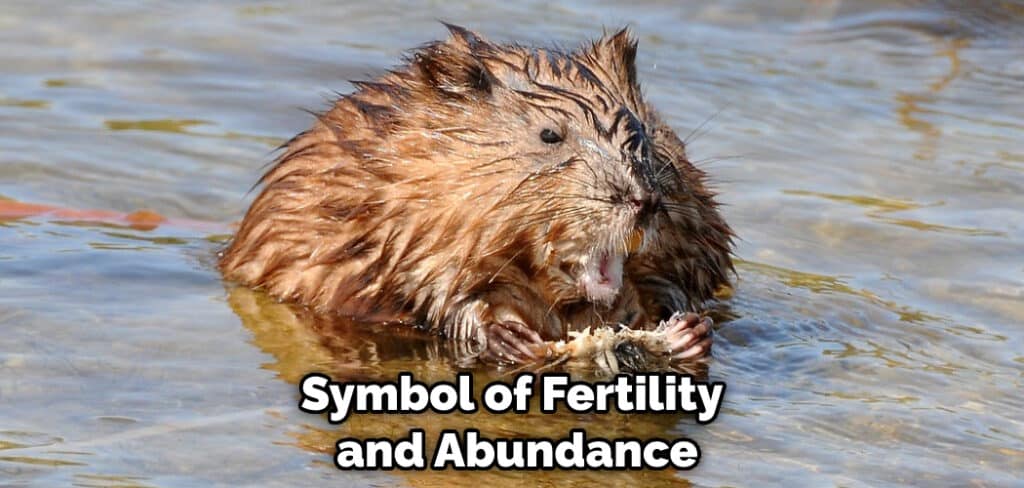
In some cultures, the muskrat is considered a lucky animal and is often used in amulets and talismans. In other cultures, the muskrat is considered a pest and is often hunted for its fur. Regardless of its reputation, the muskrat plays an important role in African symbolism.
Muskrat Spiritual Meaning
In many cultures, animals are seen as spiritual beings that can teach us important lessons. The muskrat is no exception. Native Americans believe that muskrats represent adaptability and resourcefulness, two essential qualities for survival. The Ojibwe people even give muskrats the name “maple sugar maker” because of their role in making this sweet treat.
In addition to their practical knowledge, muskrats are also known for their playfulness and curiosity. As a result, they are often seen as symbols of childlike innocence and wonder. For these reasons, the muskrat is a powerful animal spirit guide that can teach us how to navigate the ups and downs of life with grace and humor.
You Can Check It Out To Kudu Spiritual Meaning, Symbolism and Totem
Muskrat in Dreams
Dreams involving muskrats can be interpreted in several ways, depending on the context of the dream. Generally speaking, muskrats are considered to be symbols of industry, hard work, and thriftiness. They may also represent fertility and abundance. In some traditions, muskrats are also associated with water and emotional intuition.
As such, dreams involving muskrats may be interpreted as messages from the subconscious mind or as omens related to the dreamer’s emotional state. However, as with all dream symbolism, it is important to accurately consider the muskrat’s personal significance to interpret the dream’s meaning.
Muskrat Encounters and Omens
According to Algonquin tradition, muskrats are considered to be omens of good fortune. In addition, the creatures are known for their strong swimming abilities and their willingness to help others, traits that the Algonquin people admire. Although muskrats are not commonly seen today, they are still revered by many Native Americans.
In some tribes, it is believed that muskrats can teach humans how to swim, and they are often depicted in tribal stories and artwork. In addition, an encounter with a muskrat is considered a lucky event, and it is said that the creature will bring good luck to whoever sees it.

Muskrat’s Meaning in Mythology and Folklore
In many cultures, the muskrat is considered a symbol of good fortune and prosperity. In Native American mythology, the muskrat is often associated with water and humidity, as it is a creature that is equally at home on land and in water. The muskrat is also said to be a totem animal for those who are gifted with the ability to communicate with animals.
In Chinese culture, the muskrat is seen as a representation of diligence and hard work. The hard-working nature of the muskrat is also celebrated in many African folktales, where the creature is often depicted as outwitting larger and more powerful animals. So no matter what culture you come from, it’s clear that the muskrat has a rich history of meaning and folklore.
Muskrat Totem Animal
The muskrat is a small rodent that is native to North America. It is a member of the squirrel family and is closely related to the beaver. The muskrat is an important animal in many Native American cultures and is often considered a totem animal. The muskrat is known for its webbed feet, which allow it to swim powerfully through the water.
It is an excellent swimmer and an expert at building dams. The muskrat is also a very good climber, often climbing trees for food. The muskrat is a shy and timid animal, but it is also very curious. It is an important part of the food chain and plays a vital role in the ecosystem. The muskrat is an amazing animal and has a lot to teach us about life.
Muskrat Tattoo Meaning
Muskrats are members of the rodent family and are closely related to voles and lemmings. They are stocky animals with thick fur, long tails, and small ears. They are proficient swimmers and can often be seen swimming in ponds or lakes. Muskrats are found throughout North America and Europe and have been hunted for their fur for centuries.
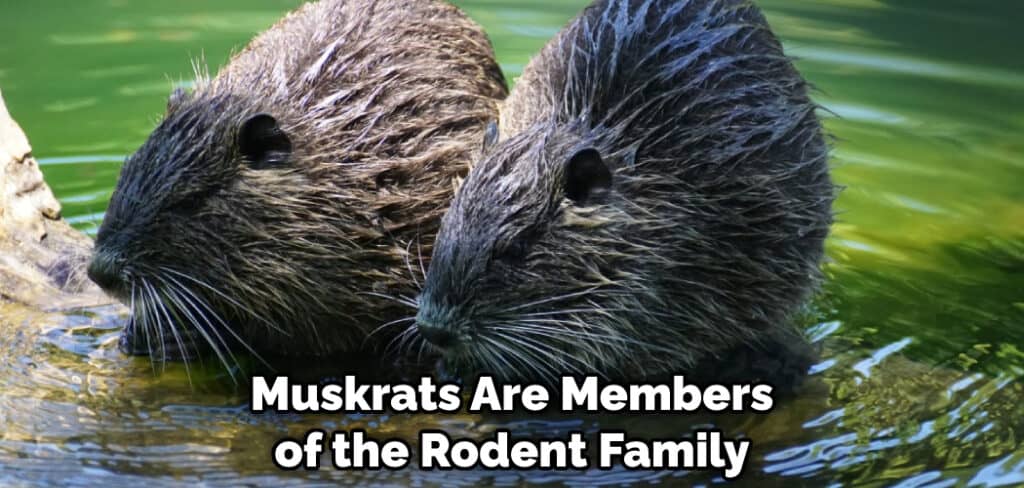
The muskrat is an important totem animal for many Native American tribes. The muskrat is a symbol of adaptability, resourcefulness, and tenacity. It is also associated with water, fertility, and new beginnings. For many people, the muskrat tattoo represents these positive qualities.
Muskrat Spirit Animal
The muskrat is a small aquatic rodent found in North America. Although it is related to the beaver, the muskrat is smaller and has a more streamlined body that is better suited for swimming. Like the beaver, the muskrat is an excellent swimmer and can stay submerged for up to 15 minutes at a time. It is an important creature in many Native American cultures and is often considered a spirit animal.
The muskrat is known for its industriousness and its ability to adapt to changing environments. It is also considered to be a symbol of fertility and growth. For many Native Americans, the muskrat embodies all of these qualities and provides guidance and inspiration.
Conclusion
In summary, the muskrat is an important animal in many spiritual traditions. It is a symbol of fertility, abundance, and new beginnings. The muskrat is also associated with transformation and healing.
These creatures are powerful totems that can help us to navigate change and find our way back to balance. Thanks for reading our post about the muskrat spiritual meaning.
You Can Check It Out to American Dipper Spiritual Meaning, Symbolism and Totem

